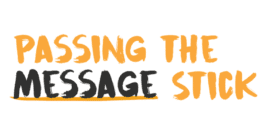What is a redistribution and why should I care?

16 November 2020 at 6:41 pm
We are in the midst of a number of redistributions at the moment, but what is a redistribution, why should I care, and what does that have to do with the social purpose sector? Neil Pharaoh explains.
Let’s kick off with a bit of background and story. As population changes, and ebbs and flows, redistributions occur in electorates, at both state and federal electoral boundaries, to ensure that districts are roughly the same population size (subject to a few limits). You may have noticed this via a letter in the mail to say you have moved electorates, or are now part of somewhere else.
Federally, in Australia, a redistribution occurs when you have big population changes, or a district becomes substantially over (or under) the “quota” of voters, or every seven years – whichever comes sooner. Each state or territory has slightly different rules, but are very similar. Practically, this means redrawing the boundaries of electorates, but also sometimes results in name changes of electoral divisions as well.
Currently we are mid-way through a federal redistribution which will add an additional seat to Victoria, and remove a seat from WA. In addition, Victoria at a state level is undertaking a redrawing of its state electorate boundaries.
In Australia, we are lucky that these are done independently, although in all cases public submissions are welcomed and encouraged.
So why should I care about political boundaries changing?
There are a number of reasons why social purpose organisations should be across changes to political boundaries:
- You may have a new or different MP, and they may be from a different political party. This may mean going back to basics for engagement, connection and activities, or it could mean you switch from government to opposition or vice versa – giving, or taking away access and insights you may have already built over time. Likewise, a new candidate or MP may be keen to engage, perhaps when you have gotten off to a rocky start.
- Your seat may become marginal, or safe. The political engagement strategy is very different in a marginal seat, versus a safe one – marginal seats are very much about reach, profile and engagement, whereas in safe seats the politics is much more about the political party. Your strategy to engage will be very different if you change from safe to marginal or vice versa
- A number of grants and programs are electorate funded, either explicitly or implicitly, so make sure you know if your grant or program will be impacted. Many smaller programs are rolled out with a certain number per electorate or region, this may shift if you change boundaries, and may reduce, or increase competition for such grants.
- Your category of electorate may change – regional, rural, remote, urban, suburban. Each opens new opportunities and challenges, and different potential investment and grants from government.
- Boundary changes may have the potential to impact and change governments – often governments may only hold their position by a seat or two, so small changes across boundaries or states do have the opportunity to impact election outcomes – so being attentive to this also helps you understand policy and funding frames for future elections.
- Seat names are also considered as part of this process, and in recent years we have seen a (in my opinion) positive trend towards more recognition of First Nations in electorate naming.
For all the above reasons, as well as being active civic participants, social purpose organisations may wish to consider making public submissions to boundary changes – whether it be to ensure (depending on your strategy) your service delivery fits cleanly into one electorate (or, strategically you may wish your services to be across multiple). You may also wish to comment over district names, and add support to organisations campaigning in this space as well.
Submissions can be quite short (a letter) or more detailed (with demographics and data), however in my experience I have found that independent boundary commissions do pay a lot of attention to social purpose and civic organisations who take the time to express their views around boundaries and the communities they serve. Submission guidelines are available online and submissions are public, so be attentive noting that what you say is in the public domain.
While this week Happenings on the hill touches on a rather mundane and practical element of working with and partnering with government (unless of course you are a psephologist), it is still a critical part of engagement with government, particularly in Victoria, where both state and federal redraws will be happening at the same time.
About the author: Neil Pharaoh has spent most of his voluntary and professional life in and around social purpose organisations, government, public policy and advocacy. Neil has been behind many leading social policy and advocacy campaigns on gender rights, equality, medical research and education, and ran for Parliament in Victoria in 2014 and 2018. He regularly runs workshops and advocacy sessions and advises leading social purpose organisations on their government engagement strategy and systems. @neilpharaoh on LinkedIn, Twitter, Instagram and Facebook.
Happenings on the hill is a fortnightly column focusing on all things politics, policy, campaigns and advocacy. Stay tuned for updates around political trends and elections, lobbying and advocacy news, and hints, tips and ideas on government engagement that are specifically written for the social purpose/for purpose sector.
If you have any ideas, suggestions, tips or questions, please feel free to email Neil Pharaoh at neil@neilpharaoh.com.au or reach out to him via social media at LinkedIn, Twitter, Instagram and Facebook @neilpharaoh.







